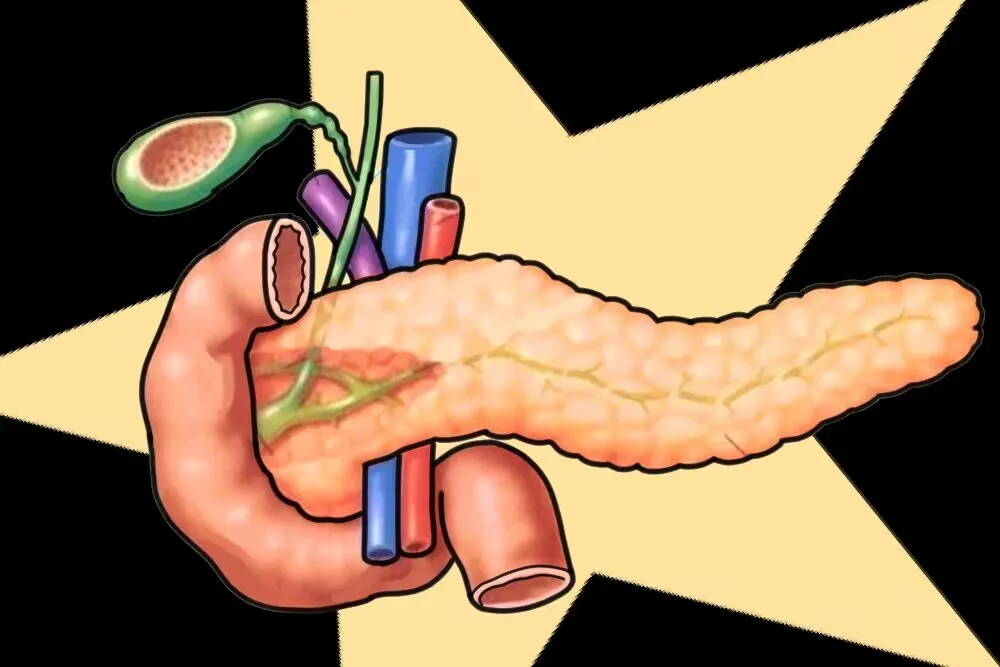"From inflammation to cancer, it actually only takes two or three steps. Many people, when they find inflammation during a physical examination, do not take it seriously, thinking it's a minor issue that can be resolved with some medication.However, when it's too late and cancer has developed, the best time for treatment has been missed. Many cancers occur on the basis of chronic inflammation, which should not be underestimated.In this issue, we will provide a thorough scientific explanation of the contributing factors from inflammation to cancer, and what issues need to be paid attention to.

Remember to share this with your family and friends, as the entire article is full of valuable information. Don't forget to like and save it.
01 How many steps are there from inflammation to cancer?
Why is it repeatedly emphasized not to underestimate the harm of inflammation?Chronic inflammation is a long-term disease that can develop gradually over months or years. (Many people, after discovering it early, do not pay attention and delay treatment.)
The development sequence is as follows:
Smoking → Bronchial, lung, and pleural inflammation → Lung cancer
Chronic gastritis → Chronic atrophic gastritis → Intestinal metaplasia, dysplasia → Gastric cancer
Chronic ulcerative colitis → Colon cancer
It must be admitted that some diseases have a negative impact on the immune system, leading to a repeated or persistent low-level inflammation in the body.
This "chronic low-grade inflammation" is closely related to your health.According to research, chronic low-grade inflammation can cause DNA damage, which may lead to cancer, such as colon cancer, lung cancer, gastric cancer, esophageal cancer, breast cancer, etc.

Continued inflammatory responses lead to necrosis and proliferation of body cells, giving cancer an opportunity. Some dietary habits in daily life can induce persistent inflammation in the body and even accelerate the development of cancer.
Many research results show that there is a certain causal relationship between inflammation and cancer. In some cancers, inflammatory conditions precede the development of malignant tumors; in other cases, carcinogenic changes drive tumors to promote an inflammatory environment. Regardless of the order of the two, inflammation has different promoting effects at different stages of cancer development through inflammatory cells and inflammatory cytokines. Of course, the occurrence of cancer is not only due to inflammation but also the influence of pro-inflammatory diets.
02 What exactly is a pro-inflammatory diet?
As everyone knows, the occurrence of cancer is closely related to diet. The so-called pro-inflammatory diet is a diet that increases the body's inflammatory levels over the long term. A pro-inflammatory diet can increase the risk of 27 chronic diseases and the risk of premature death. There is strong evidence that a pro-inflammatory diet is associated with heart attacks, premature death, colon cancer, pancreatic cancer, respiratory cancer, oral cancer, and depression. Seeing this, everyone shudders. What exactly is a pro-inflammatory diet? In daily life, what foods should we avoid?
Dr. Medical has summarized several categories for you, which you can take notes of.
Eat less high-fat and fried foods.
According to the "Dietary Guidelines for Chinese Residents (2016)," each person should consume 25-30g of cooking oil per day. But in reality, the average daily fat intake in our country is 80g, which is obviously excessive. Long-term high-fat diet can lead to systemic inflammation.

Eat less red meat and processed meat.
Red meat, such as beef, mutton, and canned meat products, that we often consume, has a risk of cancer when consumed excessively. Because during the digestion of these meats, a large amount of ferrous ions and N-nitroso compounds are produced, which can initiate the process of cellular canceration in the case of repeated inflammation.
So, it is still recommended to eat less red meat and consume some white meat in moderation. The intake of processed meat and red meat should be controlled to 1-2 times a week, not exceeding 120g each time, and choose fresh meat when eating meat.
High sugar, high starch carbohydrate foods
The above two types are more familiar to everyone, but what Dr. Medical mentions next is often overlooked by many people, that is, high sugar foods and some high-starch carbohydrates.
Many people love to eat steamed buns, white rice, cakes, and biscuits that contain a large amount of starch, which belong to this category.
After eating these foods, blood sugar rises quickly, and high blood sugar levels are conducive to the growth of bacteria and viruses, while promoting the release of insulin and adrenaline, leading to an increase in inflammatory factors in the body and exacerbating the inflammatory response.
03 Cancer prevention: eat more anti-inflammatory foods?
Having said so much, if there is any problem, correct it; if there is none, strive to do better. If you don't want to be related to cancer, anti-inflammatory foods are definitely indispensable.Dr. Medical will tell you the following, and I hope everyone can remember them and play a role in daily diet, bringing health to family and loved ones.
Eat more whole grains
Whole grain carbohydrates are an important part of an anti-inflammatory diet, and low-processed carbohydrates are rich in dietary fiber. Many people will ask, what is the role of dietary fiber?
Dietary fiber can bind with carcinogens, absorb heterocyclic amine substances, improve the proliferation of intestinal epithelial tissue, and maintain the integrity of intestinal epithelial cells. It helps to reduce the levels of certain inflammatory cytokines.
Eat more fish
Remember to eat fish regularly, such as salmon, sardines, and mackerel, which are rich in anti-inflammatory omega-3 fatty acids.
Replace alcohol with tea
Some studies have shown that drinking alcohol on an empty stomach increases the risk of gastrointestinal cancer, especially early-onset cancer. So try to drink less alcohol and replace it with tea.
Tea is rich in polyphenols, which are also a class of antioxidants that help with anti-inflammatory properties.
Eat more fruits and vegetables
Fruits and vegetables are rich in dietary fiber as well as vitamin C, beta-carotene, polyphenols, etc., most of which are good antioxidants and help to alleviate the body's inflammatory response.
Especially in autumn and winter, it is recommended to eat more fruits and vegetables.

Finally, I would like to remind everyone that no matter what, regular physical examinations should be done, especially those who already have inflammatory diseases, and seek medical treatment promptly when the body shows bad signs.
That's all for this issue, see you next time."